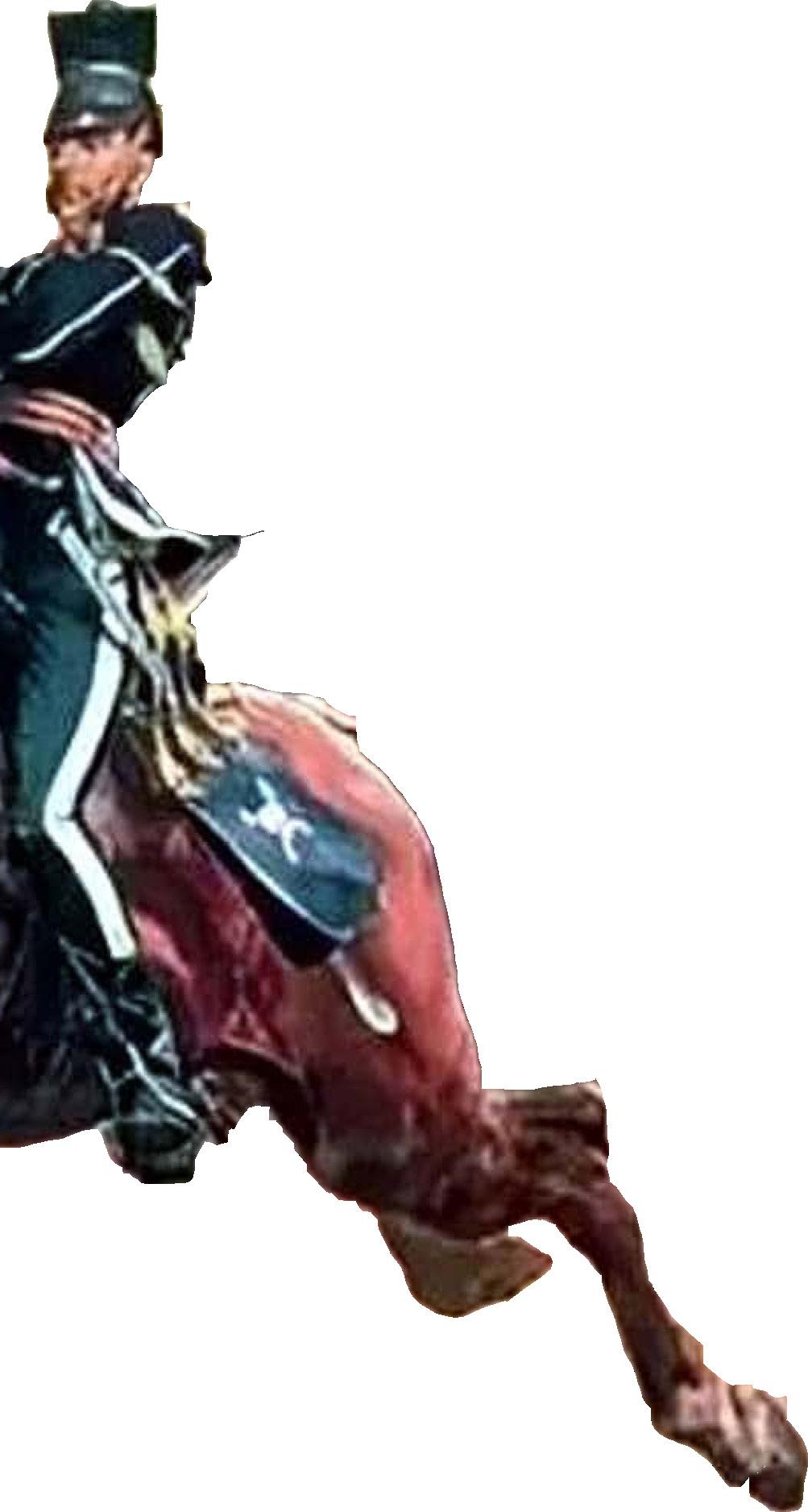
3 minute read
CHARGE OF THE LIGHT BRIGADE
Charge of the Light Brigade Equestrian Nationalism ARIANNE ZAJAC
The Charge of the Light Brigade was a failed military action in the Battle of Balaclava, during the Crimean war in 1854. Of the 670, around 110 were killed and 160 were wounded. Most significantly, it was immortalised by Alfred Lord Tennyson in a poem under the same name. The poem of six stanzas documents the suicidal military action and seeks to memorialise the fallen soldiers. Tennyson was the United Kingdom’s Poet Laureate, an honorary title, which assumes the poet will capture the public mood and will write verse for significant national events.
Advertisement
The Charge of the Light Brigade is a narrative poem in ballad form, its purpose is to tell the story of the attack. It uses a falling rhythm as well heavy repetition, as to communicate the restlessness and devastating nature of the attack. Every aspect is designed to capture the essence of the crusade. Although it was written just over 150 years ago, the feelings and themes captured in the poem are not alien to society today. In fact, they can be seen across contemporary British politics.
The poem itself is intrinsically linked to British nationalism. The poem glorifies dying for one’s country, suggesting it is the highest moral duty of a citizen to their nation. This is iterated through stanza V, in which Tennyson suggests that despite the error, not a single soldier was disconcerted and proceeded with the Charge:

Sacrificing oneself for one’s country is almost desirable under nationalism. As a central tenet to its ideology, it incurs loyalty, chauvinism, and bravery. This has typically existed throughout British history, as the majority of men would serve in the army across the empire, while these ideas of mortality were indoctrinated to children through the linking of sports clubs and militaristic ideas.
“The time of the Charge saw a notable change in British military history and convention.”
Today the British public has little appetite for sending troops abroad in murky military operations. But it does seem that politicians and public alike are willing to sacrifice themselves for other political causes, as the nation is currently publicly destroying itself over the nationalist misadventure of Brexit.
The nationalisms at play within Brexit are much more complex than the type of nationalism presented in the Charge of the Light Brigade. Significantly, since 2010 there has been an increasing politicisation of, most specifically, English nationalism. Historically, it has been used to legitimise larger polities, such as the Empire, the UK, and even the EU. But this has ultimately been inverted with Brexit, as the UK Independence party (UKIP) successfully tied English grievances to the need
to secede from the EU. Interestingly, English nationalism often seeks to merge itself with British nationalism as a whole. This has been achieved through invoking memories of the 1940s, in which Britain’s ‘finest hour’ as well as the founding of the National Health Service (NHS) took place, thus allowing Brexiteers to take English grievances and ally them to a ‘Global Britain’ project.
Furthermore, the poem seeks to create national heroes that can be honoured. The time of the Charge saw a notable change in British military history and convention. Previously, military heroes were typically gentlemen from the upper classes, however after the Charge of the Light Brigade, common men were recognised as fighting for their country, and in 1857 were awarded the Victoria Cross for the first time, regardless of their class or rank.
A common theme that has emerged throughout the Brexit debate is the ordinary people vs. the elites. It is possible that we are witnessing an attempt, through nationalist discourse, to create English heroes. There has been a notably increasing democratic deficit in the UK - primarily affecting England, fuelled through the declining role and influence of local councils and regional government. As a result, the need to create national heroes has developed; especially amongst the working class, as a means for them to see themselves represented. This is especially true after the post-nationalist government rhetoric of the Blair years, which was also devoid of class-based distinctions. Politicians, such as Nigel Farage, have been particularly successful in manipulating this gap. He has effectively championed himself as one of the people - despite his background in finance.






